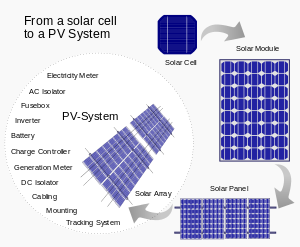If you’re considering solar panels for your home, you probably want to know how long they last. They are becoming more popular due to their potential to lower energy bills, increase home value, and reduce carbon footprint. But solar panels come with a steep price tag, so how long will they last? And what factors affect their lifespan? Here are a few tips to make them last longer. To begin, make sure they’re clean and dry.
In general, solar panels can last more than 40 years after installation. However, their efficiency will decrease over time. Monocrystalline and polycrystalline solar panels will typically have a lifespan of about half a century. Thin film solar panels will probably have a shorter lifespan and lower efficiency, so if you’re not planning to use them for more than 40 years, they’re a good option. Besides, the size of the solar system shouldn’t have a significant impact on the longevity of a solar panel.
Degradation rates of solar panels vary. Those in hot, desert climates have large decreases in output over the course of two years. On the other hand, solar panels in mild climates decrease at only 0.2% a year. At twenty years, they’ll still generate approximately 96% of their original output. As a result, the question of how long do solar panels last will remain an important one for homeowners.
Consumer solar panels can degrade around 0.5% a year, depending on climate and setup. However, even after ten years, consumer solar panels will still produce about 90% of their energy. It is important to consider these long-term effects when making the decision to purchase a solar panel. When it comes to the life expectancy of your solar panel, it’s important to take good care of your investment. The longer the solar panel lifespan, the better!
The quality of solar panels is one of the most important factors affecting the lifespan. If you buy a cheap solar panel, you’ll likely have a degraded panel sooner than a high-quality one. Extreme weather conditions, such as snow, ice, and heavy rain, can also shorten the lifespan. Extreme temperatures and humidity will also shorten the life of your solar panel. Make sure you choose a manufacturer who offers a Triple Ten Guarantee on their products.
Generally, solar panels require very little maintenance. But it’s always a good idea to check them regularly for potential problems. This way, you can prevent your panels from degrading and lowering their efficiency. And don’t forget about the power they produce. With proper maintenance, solar panels should last decades. Just be sure to follow the manufacturer’s instructions. They can easily be installed by a novice.
A typical solar installation lasts about 25 years, which is an excellent ROI. Most manufacturers offer warranties on their panels, which guarantee their peak efficiency for the entire period. However, keep in mind that some solar systems require a longer time to reach 80% production. However, if you don’t replace the panels frequently, you may need to consider investing in an extended warranty for your panels. This way, you’ll be assured that your investment will continue to generate energy long after the warranty expires.
According to industry standards, solar panels should last for 25 to 30 years. However, a solar panel may produce electricity for decades longer. Their “useful life” is often cited as 25 years. In fact, the first modern solar panel is still producing electricity at 60 years old. The same applies to most new solar panels. If properly maintained, solar panels can last up to 30 years or more. That’s a very impressive longevity for a home solar panel.
Depending on the type of solar panel you choose, you should know that high-quality solar panels are made to withstand cold and hot temperatures. They can also withstand windy debris and neighborhood critters. However, they are not invulnerable to normal wear and tear. They can suffer cracks, overheat, or even fail entirely. Even if one panel does fail, the others in the array will still continue to work efficiently and effectively.
The degradation rate of solar panels varies between brands and models. Higher-quality panels have lower degradation rates, and it may make sense to invest a little more in them. For example, a premium panel may have a degradation rate of only 0.3% per year. If you’re considering buying a solar panel, remember that it will probably outlast its warranty. There’s nothing worse than being left without electricity for an extended period of time.

